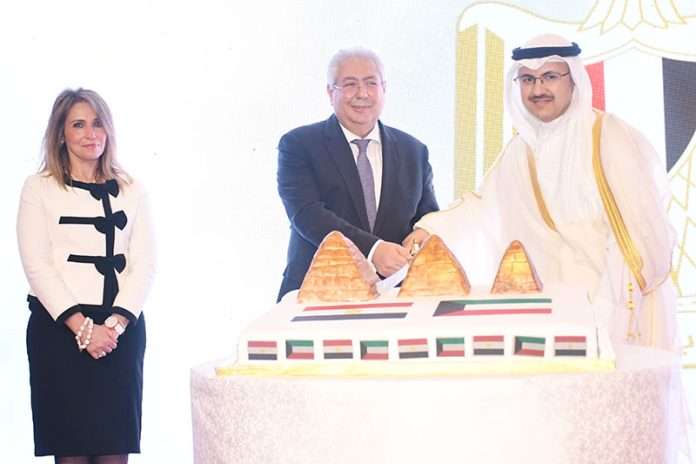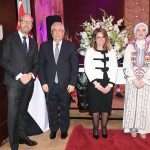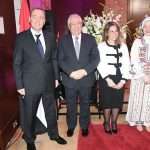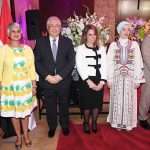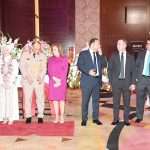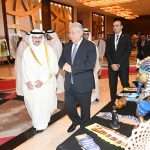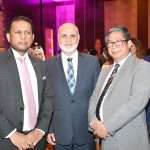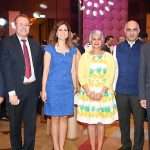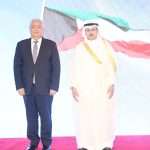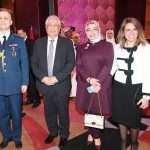Embassy of Egypt held a grand reception at the Crowne Plaza Hotel on 5 July to celebrate the 71st anniversary of the Egyptian July 23 revolution. The event was attended by Minister of Social Affairs, Family Affairs, and Childhood, Sheikh Firas Saud Al-Malik Al-Sabah, along with members of the diplomatic corps and distinguished guests.
In a statement to journalists after his attendance at the event as the chief guest, Sheikh Firas Al-Sabah praised the depth and strength of relations between the State of Kuwait and the Arab Republic of Egypt and their deep-rootedness. He affirmed the keenness of the Kuwaiti leadership and people to share in Egypt’s joys on this occasion. “I convey my greetings from the political leadership, and I hope that the joys of Egypt will last, and I wish the Republic of Egypt progress and prosperity,” said Sheikh Firas, while stressing the presence of high level Kuwaiti visits to Egypt, and pointing out that these visits will not be interrupted.
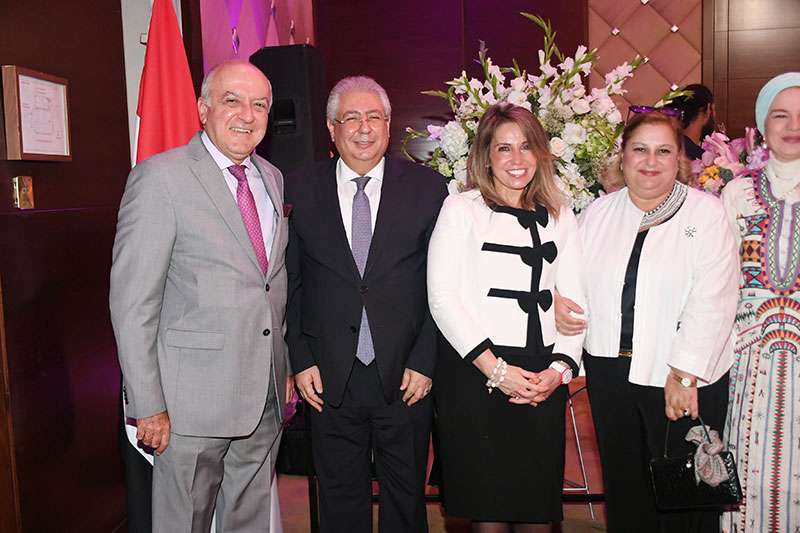
In his address on the occasion, Egyptian Ambassador H.E. Osama Shaltout welcomed the guests to the National Day celebration and described the events leading to his nation’s National Day, which had significance not only to the Egyptian people, but to the wider Arab world and to African nations. “Egypt’s National Day, the glorious 71st anniversary of the July Revolution in 1952, represented the culmination of a long struggle led by the Egyptian people to defend their right to a dignified homeland.
He said that the revolution succeeded in establishing the first republic in his country and brought about radical changes not only in Egypt but also in the entire region. It had inspiring contributions to the global movement to end colonisation and to strengthen the right of peoples to self-determination, leading to significant changes in the international map and raising the flags of freedom and independence in most Arab and African nations.
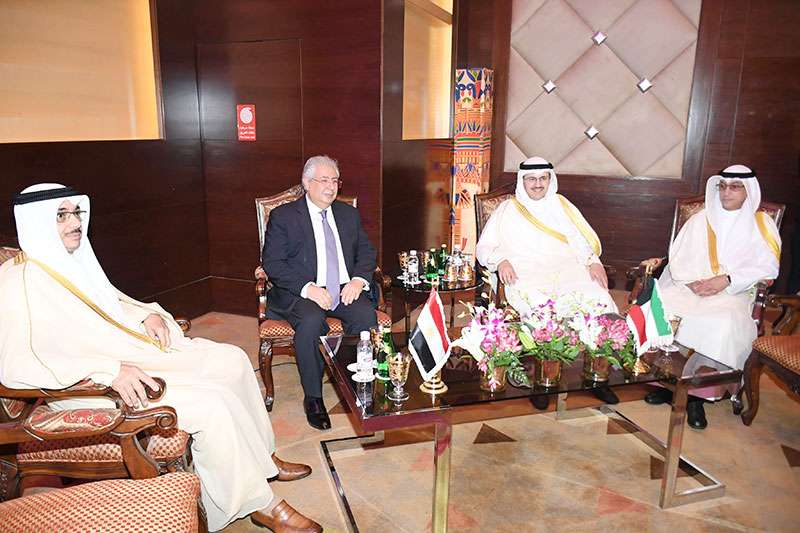
Elaborating on the June 30th Revolution in 2013, he said this paved the way for an ambitious plan that seeks to solidify the concept of the modern state that was named ‘The New Republic’. It began with infrastructure development that extended throughout Egypt . The country has constructed and developed over 10,000 kilometres of new roads, improved the efficiency of another 40,000 kilometres, built 14 new smart cities and more than 60 new urban communities.
Additionally, Egypt has implemented strategic projects such as the Suez Canal Logistics Zone, cultivated one and a half million acres of land, developed more than six ports after the expansion of the Suez Canal axis, which transformed Egypt into a regional hub for exporting energy to neighboring countries, constructed industrial cities such as the Furniture, Leather, and Textile City, and constructed the largest museum in Egypt, amidst the arrival of approximately 15 million tourists this year.
Egypt has achieved a great deal in a short period despite grappling with complex regional and international challenges that began with the COVID-19 pandemic. After successfully managing the pandemic, Egypt had to cope with the effects of international and regional conflicts that have had an impact on us all especially in the fields of food security, supply chains, and counterterrorism.
Egypt, he emphasised, has chosen peace, opting to build and prosper amidst challenging international circumstances. Egypt had also provided a real model of peace and development to be emulated. For example, during the Climate Change Conference (COP27) in Sharm El-Sheikh, Egypt presented an ambitious new vision that accounts for the aspirations of developing countries. Egypt has also launched a national strategy for human rights, including a clear roadmap that defines the responsibilities of the state, civil society, and individuals in all aspects of the comprehensive concept of human rights.
In addition, he pointed out that they had initiated a comprehensive national dialogue aimed at integrating all state institutions and civil society to continue the nation-building process led by the youth of this country who are the future of Egypt. Furthermore, the outcomes of the National Economic Conference have resulted in the issuance of the ‘State Ownership Document’ and the ‘Golden License’ for strategic projects.
Ambassador Shaltout also expressed gratitude, and appreciation to the government and people of the sisterly State of Kuwait, under the wise leadership of His Highness Sheikh Nawaf Al-Ahmad Al-Jaber Al-Sabah, may God protect and bless him, and His Crown Prince, His Highness Sheikh Mishal Al-Ahmad Al-Jaber Al-Sabah, for their warm reception of the Egyptian community, whom he held in high regard for their significant contributions and commendable representation.
He also praised the continuous commitment of the Kuwaiti leadership, government, and people to strengthen the bonds of friendship between Egypt and Kuwait, which I like to describe using the phrase coined by Kuwaiti representatives as ‘the rooted relationship’. It is a relationship based on affection, kinship, and a connection that goes deep into the annals of history – one that is built on strategic and national security relations for the two sister countries.
He said Kuwait was a country that stands as a pillar of Arab security, peace, and humanitarianism, seeking to promote peace not only within the region but also worldwide, and contributing significantly with its humanitarian role around the world.
In conclusion, he thanked all colleagues in the diplomatic mission who spared no effort in supporting Egyptian interests and strengthening Egyptian–Kuwaiti relations. He also expressed his gratitude to his life partner and companion, Ghada, who has achieved a great deal in enriching and reinforcing this deep-rooted Kuwaiti-Egyptian relationship, which, for him, served as a true model of bilateral cooperation worth emulating.

